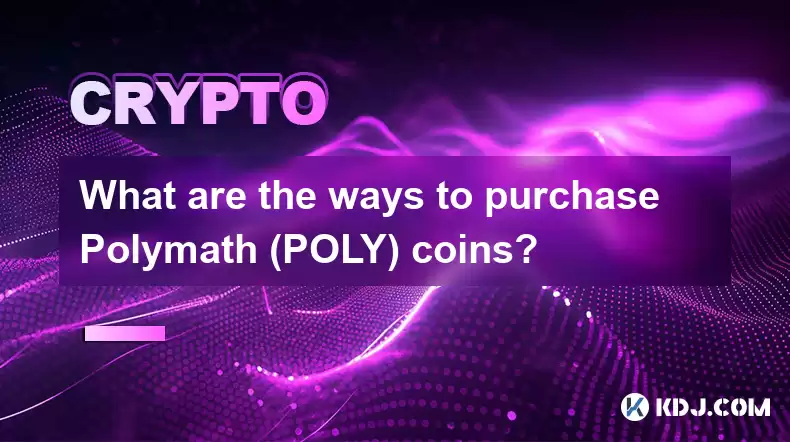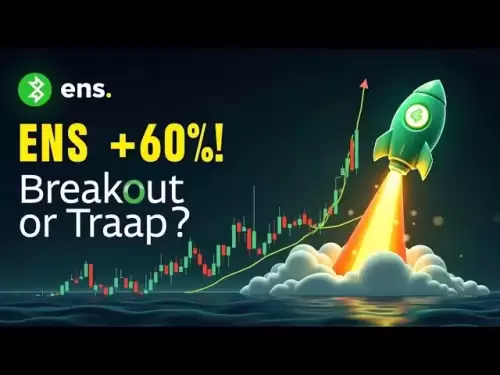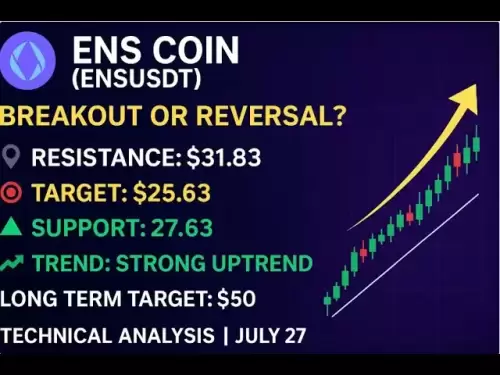-
 Bitcoin
Bitcoin $119800
1.38% -
 Ethereum
Ethereum $3873
3.25% -
 XRP
XRP $3.247
1.85% -
 Tether USDt
Tether USDt $1.001
0.02% -
 BNB
BNB $840.4
5.94% -
 Solana
Solana $190.0
2.55% -
 USDC
USDC $1.000
0.03% -
 Dogecoin
Dogecoin $0.2433
2.69% -
 TRON
TRON $0.3197
-0.05% -
 Cardano
Cardano $0.8367
1.39% -
 Sui
Sui $4.327
3.11% -
 Hyperliquid
Hyperliquid $44.00
0.31% -
 Stellar
Stellar $0.4461
1.76% -
 Chainlink
Chainlink $19.25
4.61% -
 Hedera
Hedera $0.2941
3.90% -
 Bitcoin Cash
Bitcoin Cash $598.4
6.89% -
 Avalanche
Avalanche $26.19
4.67% -
 Litecoin
Litecoin $115.1
0.50% -
 Shiba Inu
Shiba Inu $0.00001427
1.55% -
 Toncoin
Toncoin $3.379
2.01% -
 UNUS SED LEO
UNUS SED LEO $8.966
-0.16% -
 Ethena USDe
Ethena USDe $1.001
0.02% -
 Uniswap
Uniswap $11.04
4.16% -
 Polkadot
Polkadot $4.239
2.00% -
 Monero
Monero $324.6
0.36% -
 Bitget Token
Bitget Token $4.672
2.46% -
 Pepe
Pepe $0.00001294
2.69% -
 Dai
Dai $0.0000
0.01% -
 Cronos
Cronos $0.1443
2.71% -
 Aave
Aave $302.9
1.98%
What are the ways to purchase Polymath (POLY) coins?
To purchase Polymath (POLY) on a centralized exchange (CEX), create an account, deposit funds, place a "Buy" order at the desired trading pair, and store or withdraw your POLY coins accordingly.
Dec 28, 2024 at 07:51 pm

Key Points:
- Understanding Polymath (POLY)
- Centralized Exchange (CEX) Platforms
- Decentralized Exchange (DEX) Platforms
- Peer-to-Peer (P2P) Marketplaces
- Step-by-Step Guides
- FAQs
1. Understanding Polymath (POLY)
Polymath is a blockchain platform designed to streamline the issuance and management of asset-backed tokens, known as Security Tokens (STOs). It offers regulatory compliance, automated processes, and transparent infrastructure to businesses seeking alternative fundraising mechanisms. POLY is the native token of Polymath, employed for transaction fees, governance participation, and staking incentives within the ecosystem.
2. Centralized Exchange (CEX) Platforms
Centralized exchanges (CEXs) are online platforms that facilitate crypto-to-crypto and fiat-to-crypto trading with the support of a central entity, such as a company or organization. These exchanges provide a user-friendly interface, fiat gateways, and varying levels of security measures. To purchase POLY via CEXs:
- Choose a Reputable Platform: Research and compare CEXs based on reputation, security features, trading fees, liquidity, and supported cryptocurrencies, including POLY.
- Create an Account: Register on the selected exchange by providing personal information, verifying your identity, and enabling two-factor authentication (2FA) for enhanced security.
- Deposit Funds: Fund your account with fiat currencies (USD, EUR, etc.) through supported payment methods or deposit existing cryptocurrencies into your exchange wallet.
- Place an Order: Navigate to the POLY trading pair (e.g., POLY/BTC, POLY/USDT) and input the amount or value of POLY you wish to purchase. Select the "Buy" option and confirm the transaction.
- Store or Withdraw: Once the purchase is complete, you can store your POLY coins in your exchange wallet or withdraw them to a hardware wallet or external wallet for added security.
3. Decentralized Exchange (DEX) Platforms
Decentralized exchanges (DEXs) operate non-custodially, facilitating peer-to-peer trading. They eliminate intermediaries and provide greater control over assets, but may have limited liquidity and fewer user-friendly interfaces compared to CEXs. To acquire POLY via DEXs:
- Select a Suitable DEX: Choose a well-established and secure DEX that offers POLY trading pairs (e.g., Uniswap, PancakeSwap, SushiSwap).
- Connect a Wallet: Connect your cryptocurrency wallet compatible with the DEX, such as MetaMask, Trust Wallet, or WalletConnect, to initiate the trading process.
- Fund Your Wallet: Ensure your connected wallet holds enough funds in the supported base currency (e.g., ETH, BNB) to complete the POLY purchase.
- Place a Trade: Navigate to the desired POLY trading pair and specify the amount or value of POLY you wish to buy. Execute the trade by confirming the transaction within your connected wallet.
- Receive and Store: Upon trade execution, the purchased POLY coins will be credited to your connected cryptocurrency wallet. Consider transferring them to a hardware wallet for long-term storage and enhanced security.
4. Peer-to-Peer (P2P) Marketplaces
Peer-to-peer (P2P) marketplaces enable direct transactions between individuals without intermediaries. They provide flexibility, anonymity, and often lower fees, but also carry higher risks due to the lack of central oversight. To leverage P2P marketplaces for POLY purchases:
- Identify a Trustworthy Platform: Explore and compare P2P marketplaces known for their reliability, security features, and active user base.
- Find a Suitable Offer: Browse through available POLY offers from sellers, filtering based on payment methods, price, and desired amount.
- Initiate Contact: Contact the preferred seller and open a trade request. Discuss the transaction details, payment method, and exchange rate.
- Complete the Trade: Once the terms are agreed upon, exchange the payment according to the selected method and verify the receipt of POLY coins in your wallet.
- Dispute Resolution: In case of disputes or fraudulent activities, some P2P platforms offer escrow services or have dispute resolution mechanisms to protect users.
5. Step-by-Step Guides
Detailed step-by-step guides with screenshots and illustrations can provide comprehensive instructions for purchasing POLY through specific platforms. These guides can be found on the websites, knowledge bases, or community forums of the selected exchange, DEX, or P2P marketplace. Additionally, YouTube tutorials and online resources may also offer step-by-step guidance for novice users.
FAQs
- Q: Can I buy POLY with fiat currencies like USD or EUR?
- A: Yes, you can purchase POLY with fiat currencies on centralized exchanges that offer fiat-to-crypto services.
- Q: Which DEXs have the highest liquidity for POLY trading?
- A: Uniswap, PancakeSwap, and SushiSwap are among the leading DEXs offering high liquidity for POLY trading.
- Q: Are P2P marketplaces safe for buying POLY?
- A: P2P marketplaces carry inherent risks as there is no central oversight. Choose reputable platforms, exercise caution, and consider using escrow services when engaging in peer-to-peer transactions.
- Q: What is the transaction fee for buying POLY on a CEX?
- A: Transaction fees for buying POLY on CEXs vary depending on the platform, trading pair, and user level. Typically, fees range between 0.1% and 0.5% per trade.
- Q: How can I store my purchased POLY coins securely?
- A: Consider storing your POLY coins in a hardware wallet or external cryptocurrency wallet for enhanced security and complete control over your assets.
Disclaimer:info@kdj.com
The information provided is not trading advice. kdj.com does not assume any responsibility for any investments made based on the information provided in this article. Cryptocurrencies are highly volatile and it is highly recommended that you invest with caution after thorough research!
If you believe that the content used on this website infringes your copyright, please contact us immediately (info@kdj.com) and we will delete it promptly.
- Bitcoin's Potential Final Rally: Decoding Historical Data and Future Projections
- 2025-07-28 06:30:11
- BlockDAG, XRP, and Utility-Driven Growth: A New Era for Crypto?
- 2025-07-28 06:30:11
- Litecoin's ADX Crossover: Rally Potential or False Dawn?
- 2025-07-28 06:50:11
- Arctic Pablo Coin: Meme Coin Mania and Presale Buzz in 2025
- 2025-07-28 06:50:11
- Arctic Pablo: Meme Coin Mania or ROI Rocket?
- 2025-07-28 06:55:11
- Worldcoin's Wild Ride: Uptrend Battles Resistance Amidst Regulatory Waves
- 2025-07-28 07:00:12
Related knowledge

What is Chainlink (LINK)?
Jul 22,2025 at 02:14am
Understanding Chainlink (LINK): The Decentralized Oracle NetworkChainlink is a decentralized oracle network designed to bridge the gap between blockch...

What is Avalanche (AVAX)?
Jul 22,2025 at 08:35am
What is Avalanche (AVAX)?Avalanche (AVAX) is a decentralized, open-source blockchain platform designed to support high-performance decentralized appli...

What is Polkadot (DOT)?
Jul 19,2025 at 06:35pm
Understanding the Basics of Polkadot (DOT)Polkadot (DOT) is a multi-chain network protocol designed to enable different blockchains to transfer messag...

What is Litecoin (LTC)?
Jul 23,2025 at 11:35am
Overview of Litecoin (LTC)Litecoin (LTC) is a peer-to-peer cryptocurrency that was created in 2011 by Charlie Lee, a former Google engineer. It is oft...

What is Monero (XMR)?
Jul 21,2025 at 10:07am
What is Monero (XMR)?Monero (XMR) is a decentralized cryptocurrency designed to provide enhanced privacy and anonymity for its users. Unlike Bitcoin a...

How to add indicators to Ethereum chart on TradingView?
Jul 19,2025 at 07:15am
What Is an Ethereum Chart on TradingView?The Ethereum chart on TradingView is a visual representation of the price movement of Ethereum (ETH) over a s...

What is Chainlink (LINK)?
Jul 22,2025 at 02:14am
Understanding Chainlink (LINK): The Decentralized Oracle NetworkChainlink is a decentralized oracle network designed to bridge the gap between blockch...

What is Avalanche (AVAX)?
Jul 22,2025 at 08:35am
What is Avalanche (AVAX)?Avalanche (AVAX) is a decentralized, open-source blockchain platform designed to support high-performance decentralized appli...

What is Polkadot (DOT)?
Jul 19,2025 at 06:35pm
Understanding the Basics of Polkadot (DOT)Polkadot (DOT) is a multi-chain network protocol designed to enable different blockchains to transfer messag...

What is Litecoin (LTC)?
Jul 23,2025 at 11:35am
Overview of Litecoin (LTC)Litecoin (LTC) is a peer-to-peer cryptocurrency that was created in 2011 by Charlie Lee, a former Google engineer. It is oft...

What is Monero (XMR)?
Jul 21,2025 at 10:07am
What is Monero (XMR)?Monero (XMR) is a decentralized cryptocurrency designed to provide enhanced privacy and anonymity for its users. Unlike Bitcoin a...

How to add indicators to Ethereum chart on TradingView?
Jul 19,2025 at 07:15am
What Is an Ethereum Chart on TradingView?The Ethereum chart on TradingView is a visual representation of the price movement of Ethereum (ETH) over a s...
See all articles

























































































